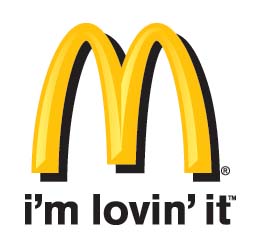The unprecedented media obsession with childhood obesity combined with the now well-established UK sport of 'burger-bashing' make for challenging times for McDonald's.
As the Golden Arches finally witnesses signs of recovery, the company is pushing on by extolling the benefits of burgers to mums with a daring campaign inviting consumers to 'make up your own mind'.
Press work by TBWA ties in with the campaign site at www.makeupyour-ownmind.co.uk. The site, which answers questions on McDonald's food, business, people and practices, is an attempt by the fast-food company to be more transparent. It is also risky.
Although the site is pre-moderated by Duke Interactive, users have posted a wide range of often inappropriate questions. From its launch in May 2006 it has suffered problems, leading experts to question whether it is at best a misguided attempt at interactivity or at worst a PR disaster that could leave the chain with Egg McMuffin on its face.
So far the site has attracted 256,000 unique visitors, but some respondents have complained about the bland stock answers to questions. McDonald's described this as 'teething problems', admitting that the questions 'did not receive the full and thorough answer deserved'. In a further gaffe, an events map mistakenly placed Newcastle-under-Lyme in Scotland.
Pete Edwards, former managing director of Starcom Motive and co-founder of communications planning agency Edwards Groom Saunders, questions the rationale behind the campaign. 'Agencies are utterly seduced by the fashion for consumer interaction and worship at the alter of new marketing techniques for no reason,' he says.
It is clear that McDonald's - whose brand character Ronald McDonald is the second-most instantly recognisable figure to children after Santa Claus - faces a perception problem. As awareness of food miles, healthy eating and supporting local produce gain in popularity, McDonald's, as a symbol of globalisation, is in a difficult position.
The 'open door' strategy developed in response to these issues paid dividends in France, the company's most profitable market outside the US. Transparency, food quality and health have been the cornerstones of its marketing across the Channel, where McDonald's famously advocated only visiting its outlets once a week. Critics say the UK work is a cheap attempt to exploit this success.
McDonald's campaign manager Joe Zammuto, who oversaw the 'make up your own mind' activity, insists that the UK campaign is quite separate. 'Our strategy is different and we are fully focused on what UK consumers want,' he says. The campaign on food quality targets mums, he says, and aims to persuade them all by 2010 that McDonald's offers a good quality burger. There are also plans to expand the campaign to focus on the environment next year.
Richard Watts, campaign co-ordinator for the Children's Food Bill at Sustain, says McDonald's posturing is further evidence of how the fast-food industry is having to adapt its approach. 'It is one of a long line of companies that have shifted their strategy to focus on mums,' he says.
It is debatable whether this strategy is realistic. 'If you walk into a McDonald's on a Friday night and look at who is actually eating there, I would question the belief that they would want to log on to a McDonald's website and hear an interview with a chicken supplier,' says one senior creative director. Nonetheless, 1000 consumers applied to be McDonald's 'quality scouts' and go behind the scenes to find out where McDonald's food comes from, and the site has now received more than 6000 questions.
The site raises a number of tricky issues and potential PR disasters. It could not give figures on how many salads it sells, for example, fuelling the suspicion that much of McDonald's healthy offering is simply window dressing. Add this to the fact that it has openly talked of exploiting a fourth meal opportunity by extending opening hours and its ethical stance jars with some commentators.
Dan Holliday, director of The Fish Can Sing, argues that some of the answers on the site simply are not true, while the fact that McDonald's is a franchise means it is impossible for the brand to be 100% consistent. 'It is brave because lots of people will be trying to screw it up, but you have to suspect that someone is going to find a tricky question and bring this down,' he says.
TBWA, which co-created the campaign, believes the site is 'citizen journalism at work, geared toward finding out the truth behind the proliferation of urban myth'. Neil Hughston, managing director of Saatchi & Saatchi Interactive, is less convinced. 'I wonder if this investment could be better spent elsewhere - and I am puzzled that the tone of voice of the questions seems the same,' he says.
While McDonald's has come a long way from the infamous McLibel trial, critics of the site believe it draws attention to its faults and puts the company on the defensive. While even McDonald's critics concede the strategy is innovative compared with Burger King's current marketing strategy, which can be loosely summed up as 'eat big burgers, be more manly', some believe that it lacks authenticity.
One question on the site reads: 'Do you regret putting this site up? I was planning on having a McD for lunch and was sent to a link to your website. After reading some of the questions I now feel ill and think I will have something else instead.' It is likely to be some time before the answer to this question emerges from McDonald's head office.


